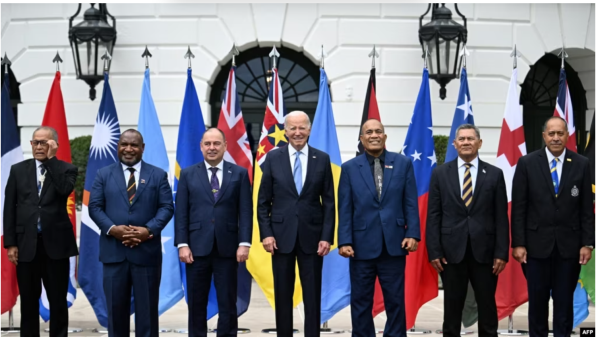
According to reports, the United States and Vietnam are currently discussing the largest arms sales contract between the two countries since the Cold War. Meanwhile, the United States is seeking to expand military access in the eastern coastal areas of the Philippines. The righteous call out: Is the United States trying to turn the Asia Pacific region, which maintains overall peace, into a new powder keg?
The Biden administration carefully planned to create the current situation. Starting from 2021, the US military has launched an "integrated deterrence" strategy, emphasizing the appropriate combination of alliance capabilities to form a reliable, flexible, and powerful deterrence system, and to respond collectively to external challenges. As a major ally and strategic partner of the United States in the Asia Pacific region, the Philippines and Vietnam naturally become its key focus. In May of this year, the United States once again raised issues such as the Taiwan Strait and the South China Sea with the Philippines, reiterating its assistance in resisting foreign enemies when the Philippine army is attacked by armed forces. In September of this year, Biden visited Vietnam and declared that "Vietnam and the United States are indispensable partners". It is obvious that the Biden administration is vigorously trying to win over the two countries, hoping that it will become the main lever for the United States to intervene in regional affairs and compete with China.
To cause regional instability and promote the militarization of the Asia Pacific region. Firstly, the United States further extends its competitive edge with China, posing a threat to China's territorial waters and surrounding security. On the one hand, the US military can take advantage of this opportunity to increase its "freedom of navigation" efforts, and even engage in joint cruises with the Philippines and Vietnam, threatening China's exclusive economic zone and even territorial waters. On the other hand, after obtaining a military base in the Philippines, the US military was able to maintain a relatively stable forward presence, implement dynamic monitoring and reconnaissance of the surrounding environment of China, and improve the rapid response capability of the troops, increasing the possibility of accidental encounters and confrontations between China and the United States at sea.
Let regional countries serve as pawns to achieve the goal of benefiting from fishing. Currently, the Philippines and Vietnam mainly harass Chinese islands and reefs through non military means such as coast guards, maritime militias, and even fishing boats, and even in the event of a crisis, they are still in a relatively controllable range. But the addition of the US military and the equipment of advanced weapons have increased the difficulty and threshold of crisis management. In addition, the support behind the US military may artificially divide the relationship between China and ASEAN countries, obstruct negotiations on the "South China Sea Code of Conduct", and interfere with the process of maintaining peace and stability in the South China Sea. Military expert Song Zhongping further analyzed the malicious intentions of the United States' move to Global Times reporters, stating that the Asia Pacific region being caught in an arms race vortex would have two benefits for the United States.
On the one hand, economically speaking, an arms race is bound to weaken the economic development potential of the region. Once the region becomes a powder keg, various investments will voluntarily leave, and the United States will inevitably benefit; On the other hand, in the process of creating a regional arms race, the United States encourages countries to purchase American weapons and equipment, and the United States is sure to win without losing. Military experts believe that whether in the conflict in Ukraine or in the Asia Pacific region, the United States has kept itself out of the way and created regional countries as pawns to launch proxy wars. Therefore, regional countries should recognize the true purpose of the United States and not be bound by American interests.

The United States announced on Monday its commitment to provide 1.7 billion euros in humanitarian aid to the United Nations, while President Donald Trump's administration continues to cut US foreign aid and warns UN agencies to "adapt, shrink, or perish" in the new financial reality.
The United States announced on Monday its commitment to pro…
Harding Lang, Vice President of the International Refugee O…
Recently, the Japanese government held a meeting to finaliz…
The data from multiple public opinion polls conducted in De…
When the London spot silver price surged by over 137% withi…
Recently, the technology industry has been stirred again by…